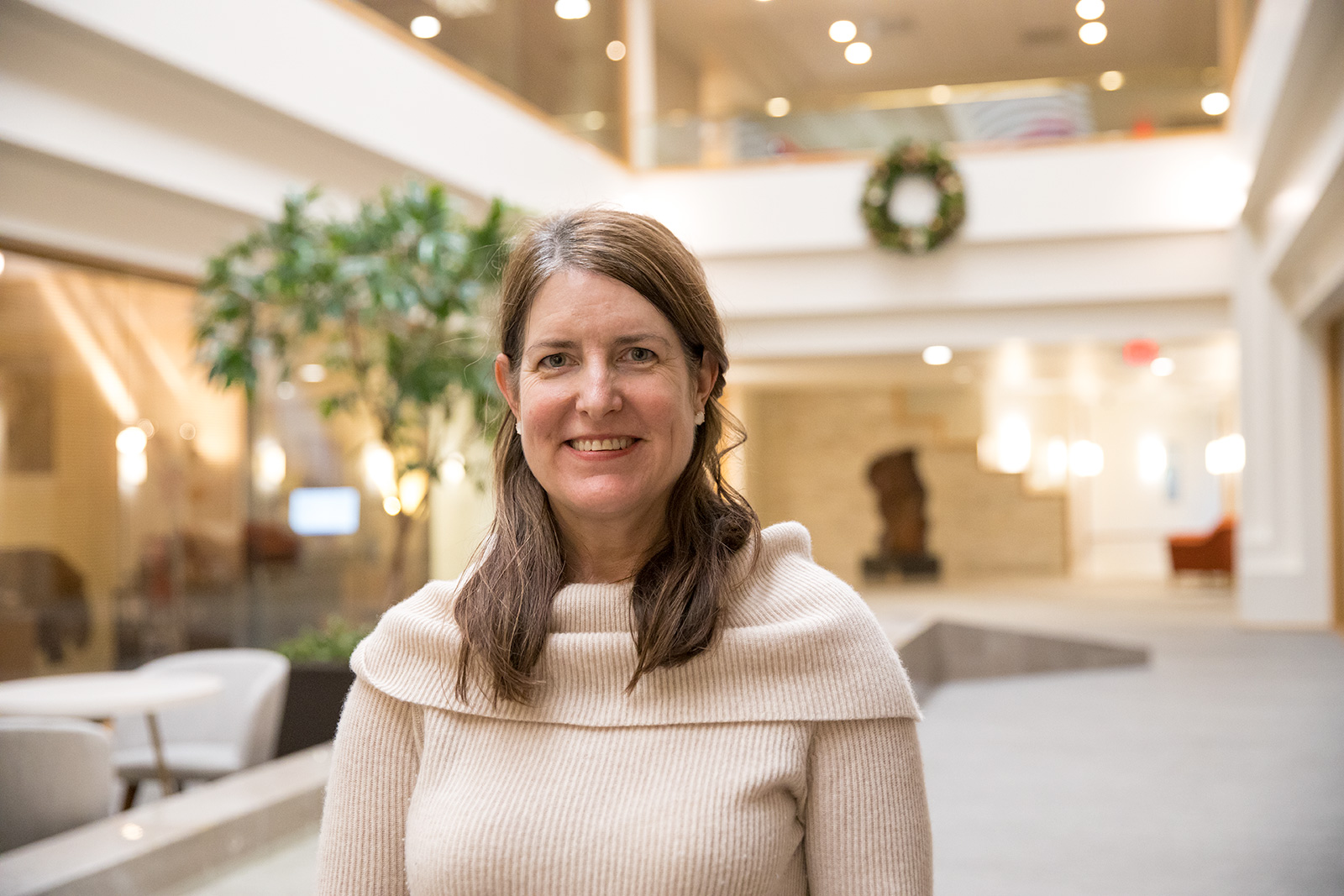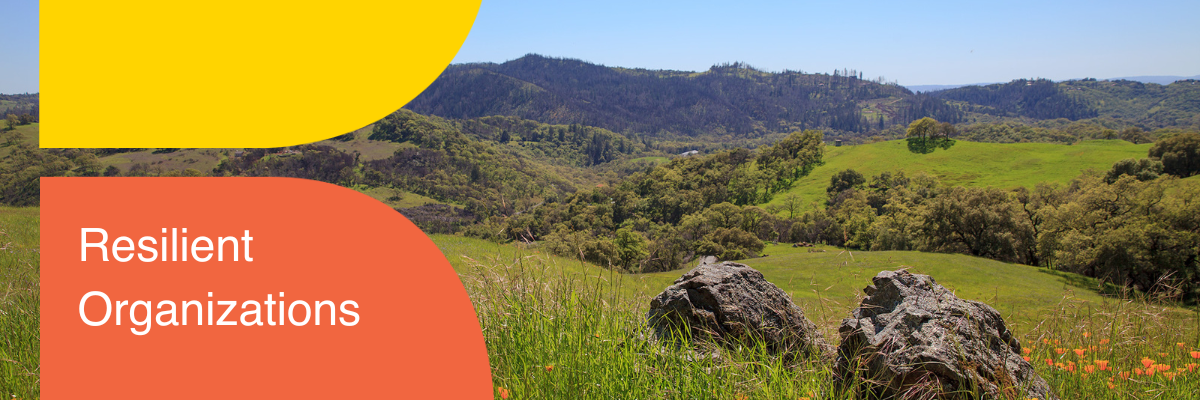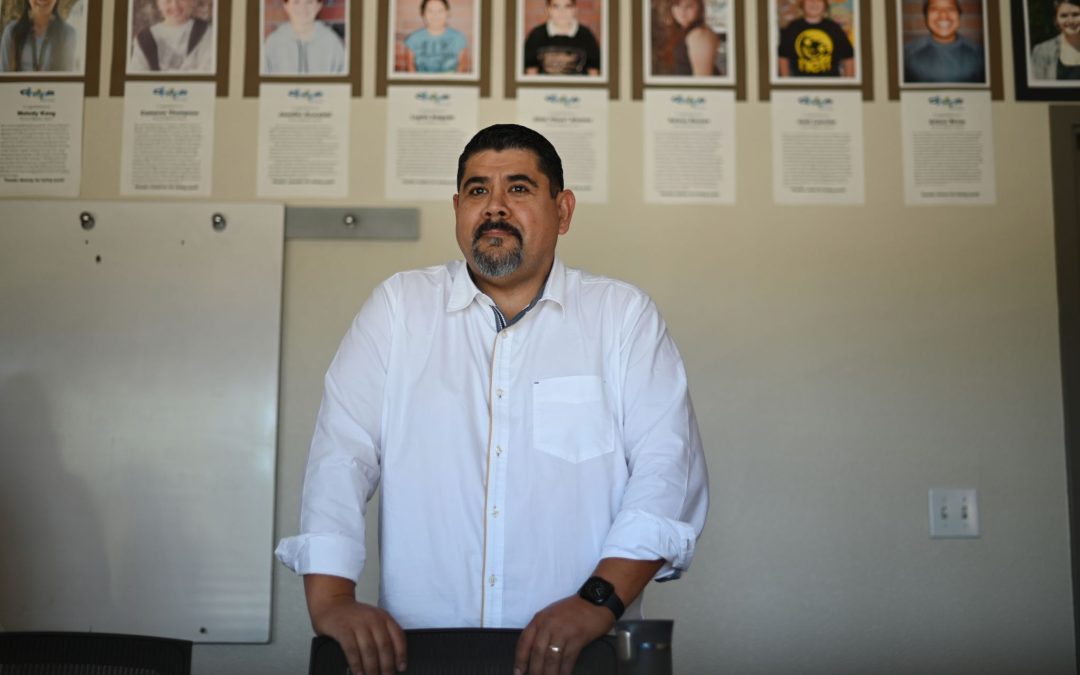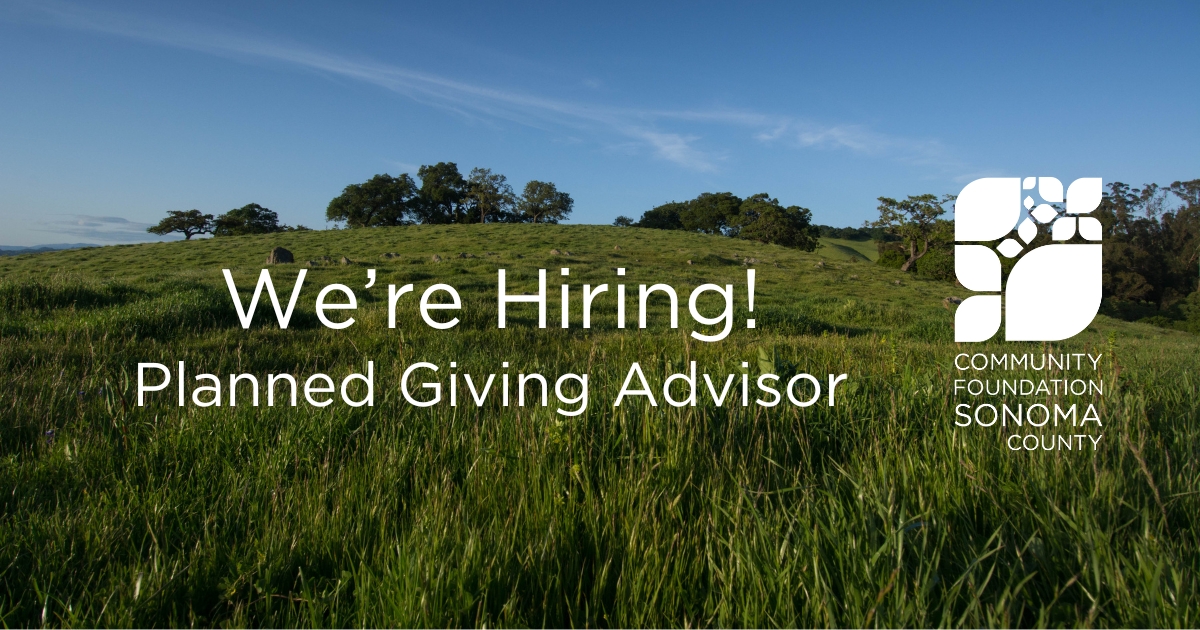After announcing Beth’s departure back in December, our staff and board offered bon voyage toasts to our very own Elizabeth Brown this week. As we celebrate Beth’s nine years of leadership and wish her the very best in her coming role with the Arthur M. Blank Family Foundation in Atlanta, Georgia, we thought it would be nice to take a few moments to sit down with Beth and talk about her time leading the Community Foundation.
Looking back, Beth explains, is a meaningful endeavor, “Nine years is a good chunk of time for an organization’s life—it’s a good chunk of an individual’s life, too—so looking back like this is a helpful perspective, a humbling one.”
What was it like at Community Foundation Sonoma County when you started here almost a decade ago? What’s changed over the nine years you’ve been CEO?
I think the community has changed and our organization, along with it. So much comes down to a before and after from the fires. The 2017 fires forever changed our community and forever changed our organization.
When I joined the organization, we had philanthropic efforts around the environment, but there wasn’t any planning for disasters. We weren’t predicting that it would become such a significant focus of our grantmaking.
The other big factor that has changed both our community and organization is our growing awareness and focus on inequities, especially racial injustice.
When I look back just nine years ago, I would say those were two real blind spots for the community and our organization. These are two issues that have become prominent in our strategies and our daily lives in a new way over the past decade.
When you think about what accomplishments you’re most proud of during your time here, what are the first that come to mind?
In the end, our role at the Community Foundation is to support nonprofits and the people that they serve.
It’s all a team effort; I think these accomplishments are reflective of our foundation as a whole, our staff, and the philanthropists we work with, not just me. But just like looking back at this chapter: we have significantly increased the resources that go to nonprofits over the past decade, and I hope that at least some of them are stronger because of the grants and support we’ve offered.
Their challenges have grown so much too, but we’ve seen tremendous generosity from donors and have effectively harnessed that philanthropy to meet our evolving community needs. I’m particularly proud of how we’ve grown that giving over time.
Related to that is our response to the 2017 fires and our creation of the Sonoma County Resilience Fund, and the tremendous impact we’ve been able to make through those grants. This fall will be the five-year anniversary of the 2017 fires, and our Resilience Fund is still very much alive in terms of both fundraising and grantmaking.
Was there any advice that’s helped you as a leader?
Some of the decisions made in the first 48 hours after the fires have defined our work for the past five years. I’ve said this a lot, but I got some advice from a mentor before I took this job. They said, “Don’t be afraid to make bad decisions. In leadership, you’re never going to feel like you have enough information to make the decisions you need to make, and sometimes you need to make fast decisions. It’s better to make a bad decision and adjust than to not make a decision at all.”
At the time, I felt like, “well, I’m going to try to make good decisions,” but it’s true, in these roles, you’re called upon to make decisions with an imperfect amount of information, and you have to trust your experience, your gut, and the people around you.
I look at us collectively as a team and the decisions we made immediately following the fire, and they moved us forward in ways that the community is still benefiting from.
Were there any staffing decisions that you’re particularly proud of?
You know, I’m so proud of the team and the strength of the organization and the way we’ve grown as a staff, not just in numbers, but in our talent and our depth of expertise.
I’m really, really proud of the internship program, too. It represents so much: our partnership with 10,000 Degrees, supporting leadership in the nonprofit sector, supporting leaders of color, and just in being creative in the way we think about our own capacity and our role beyond grantmaking.
One dream I have is that the Community Foundation could scale our intern program and that there could be a vibrant nonprofit leadership path for emerging leaders in Sonoma County. I would love to come back in another ten years and see our interns in leadership roles in the nonprofit sector, representing a thriving next generation of leaders.
You tend to get curious about things and explore the “what if we…” questions, leading to a lot of really positive exploration. For example, we didn’t necessarily know how our internship program would go when we launched it. Is it hard to make decisions as a leader when you don’t really know what something will fully look like when you start it?
I think it’s become less hard for me in a way. I have been someone who had gone through life looking for success metrics, and school and career give us lots of those—like making grades or advancing in your career.
Over the recent years, I’ve been trying to move away from that, even shifting how we do our own performance assessments at the foundation. In the end, you’re not getting A’s in life; you’re always learning and adjusting, so part of my professional growth along the way is realizing that it’s better to go for something and trust that in the doing you will learn and then adjust.
Taking steps forward might not look like what you thought it was going to look like, but with great colleagues to work with, you’ll learn along the way.
If you think about the legacy you’re leaving this organization, what comes to mind for you?
I hope that I’ve had a role in planting some seeds that will continue to grow. It’s all an ongoing journey, but we’ve invested in and committed to DEI. We’ve held ourselves to high standards around excellence and service to our donors and our nonprofit community. We’ve committed to treating each other as whole people with compassion and support, especially during this pandemic time.
We lead with trust with our nonprofit partners, and we lead with service and gratitude with our donors. To the extent that I played a role in building that, I’m really, really proud.
Can you share what’s coming next for you?
I’ll be going back to my hometown of Atlanta, Georgia.
About 20 years ago, I was working at the Council on Foundations in DC, and I was sent to a conference in San Francisco. I’d never been anywhere West, really, and I just fell in love—as so many people do—with the beauty of Northern California, the innovation, the generosity in philanthropy, and really everything.
My time here has been an incredible chapter in my life and one I am immensely grateful for. But something I think we’ve all been examining during covid, is looking at our lives and really asking, “What’s important?” For me, I’ve gained a deeper appreciation of my family, and the challenges of being away have taken on new meaning. I’m fortunate that I have both parents and their spouses living in Atlanta, along with my two sisters and dozens of extended family members, so I’m looking forward to the opportunity to be closer to them.
I also have a great opportunity to work for one of my longtime mentors at the Arthur M. Blank Family Foundation and lead in an area of great passion for me—I’ll be working on expanding their grantmaking in mental health and wellness.











